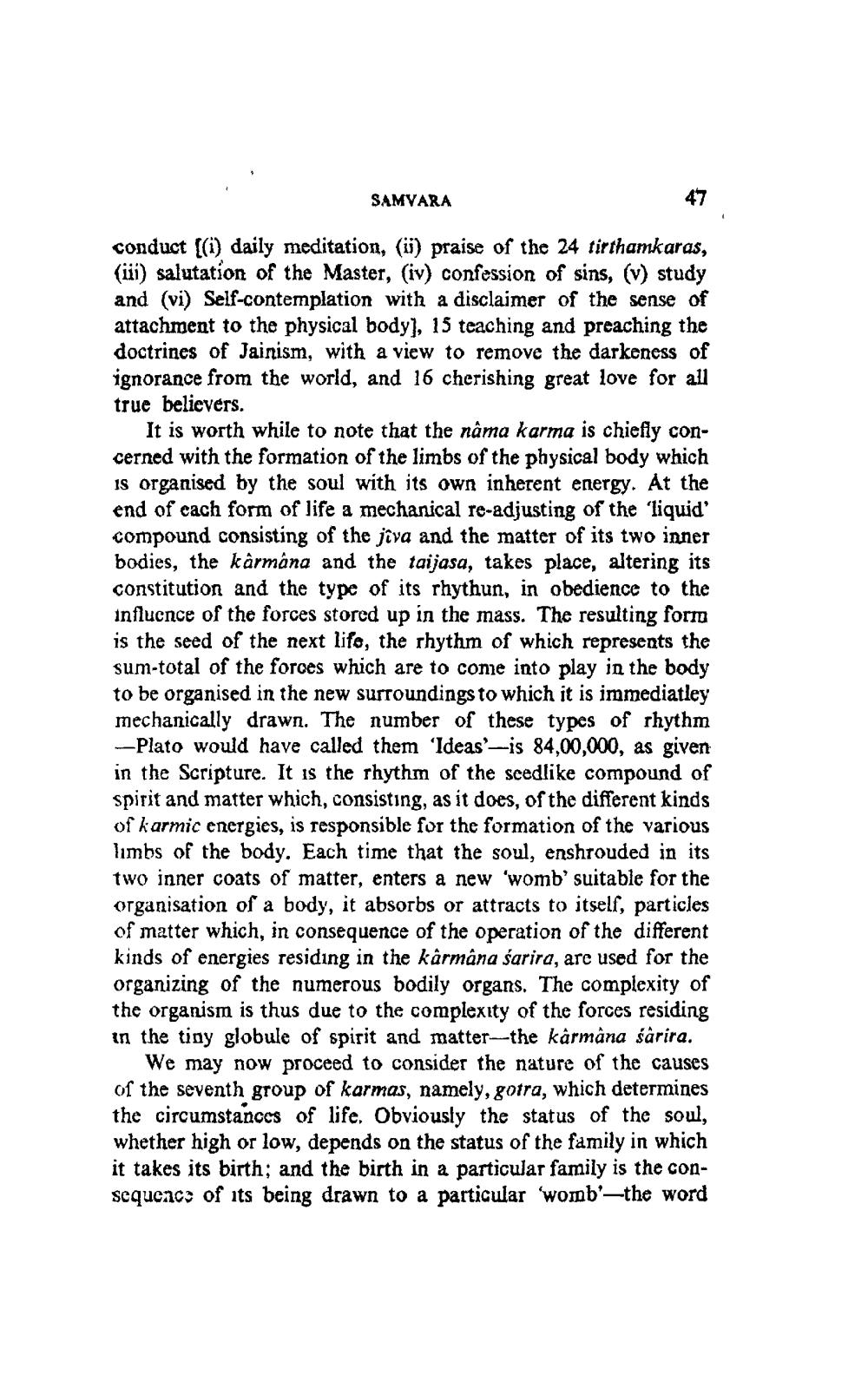________________
SAMVARA
conduct (1) daily meditation, (ü) praise of the 24 tirthamkaras, (iii) salutation of the Master, (iv) confession of sins, (v) study and (vi) Self-contemplation with a disclaimer of the sense of attachment to the physical body), 15 teaching and preaching the doctrines of Jainism, with a view to remove the darkeness of ignorance from the world, and 16 cherishing great love for all true believers.
It is worth while to note that the nama karma is chiefly concerned with the formation of the limbs of the physical body which
inherent energy. At the end of cach form of life a mechanical re-adjusting of the 'liquid' compound consisting of the jîva and the matter of its two inner bodies, the kârmana and the taijasa, takes place, altering its constitution and the type of its rhythun, in obedience to the influence of the forces stored up in the mass. The resulting form is the seed of the next life, the rhythm of which represents the sum-total of the foroes which are to come into play in the body to be organised in the new surroundings to which it is immediatley mechanically drawn. The number of these types of rhythm --Plato would have called them 'Ideas'-is 84,00,000, as given in the Scripture. It is the rhythm of the scedlike compound of spirit and matter which, consisting, as it does, of the different kinds of karmic energies, is responsible for the formation of the various limbs of the body. Each time that the soul, enshrouded in its two inner coats of matter, enters a new 'womb' suitable for the organisation of a body, it absorbs or attracts to itself, particles of matter which, in consequence of the operation of the different kinds of energies residing in the kârmâna sarira, are used for the organizing of the numerous bodily organs. The complexity of the organism is thus due to the complexity of the forces residing in the tiny globule of spirit and matter--the karmana sarira.
We may now proceed to consider the nature of the causes of the seventh group of karmas, namely, gotra, which determines the circumstances of life. Obviously the status of the soul, whether high or low, depends on the status of the family in which it takes its birth; and the birth in a particular family is the consequence of its being drawn to a particular 'womb'-the word




